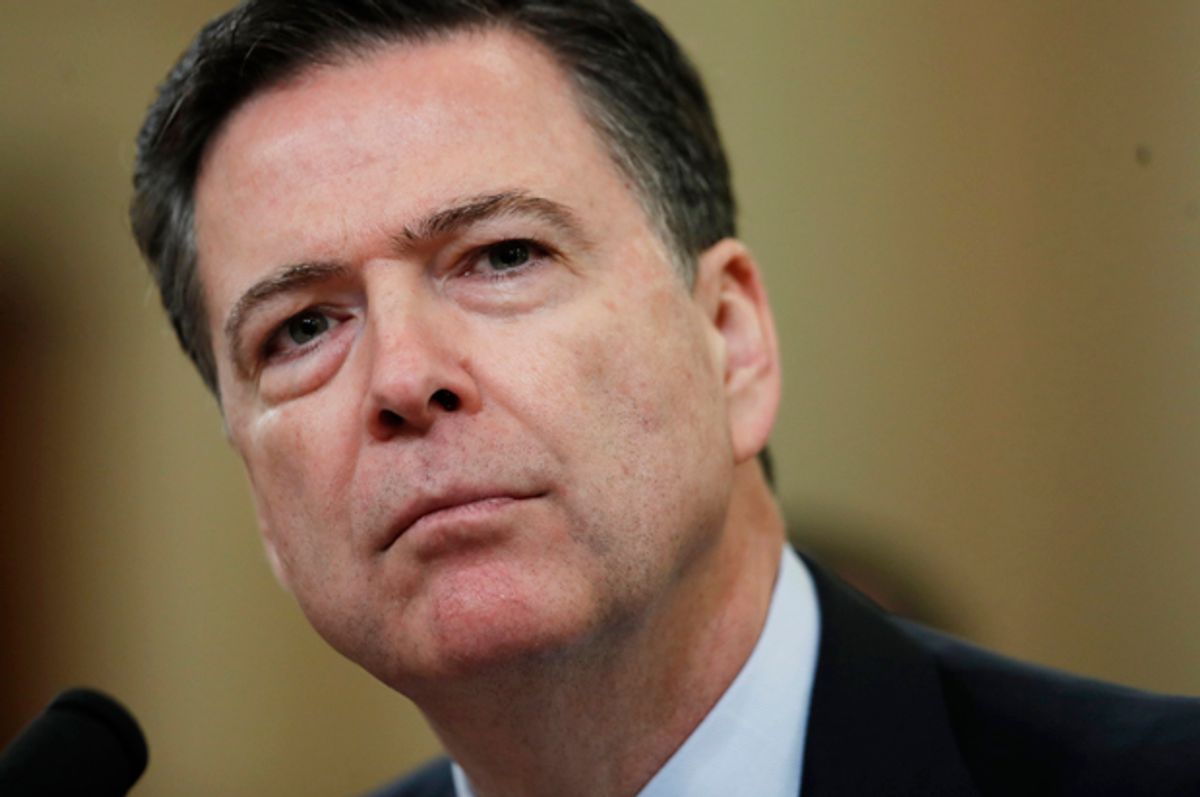FBI Director James Comey has found himself in the spotlight again as the congressional investigations into Russia election interference seem to be heading in opposite directions.
In the House Intelligence Committee, the chairman, Rep. Devin Nunes, abruptly cancelled Comey's private testimony on Monday, clarifying later that the director could not make the session. On Tuesday, Nunes said that he had extended a formal invitation to Comey to come back for another hearing.
Comey, however, claims to have never received either invitation. A source at the FBI told CNN that the reason Comey could not make Monday's hearing was because Nunes never invited him. CNN reported that Nunes did write up a formal letter inviting Comey to brief the committee in private, but Rep. Adam Schiff, the ranking member, refused to sign the invite on the grounds that he wanted to hold the hearing public like they had originally agreed.
As far as the invitation to come back to the committee, which Nunes claimed to have sent Tuesday, Comey has also yet to receive it. A Nunes spokesman conceded that, while his office has had discussions over the phone with Comey's staff, it has not submitted a formal request to Comey. The spokesman told CNN that the director would not testify without a formal invite.
The chaos in House Intelligence Committee will only be made worse, thanks to a story from Newsweek which reports that Comey was prepared to write an op-ed for The New York Times in June or July that would have revealed the extent to which Russia was trying to interfere in the election, according to anonymous sources.
From Newsweek:
The op-ed would not have mentioned whether the FBI was investigating Donald Trump’s campaign workers or others close to him for links to the Russians’ interference in the election, a second source with knowledge of the request tells Newsweek. Comey would likely have tried to publish the op-ed in The New York Times, and it would have included much of the same information as the bombshell declassified intelligence report released January 6, which said Russian President Vladimir Putin tried to influence the presidential election, the source said.
This would seem to contradict Comey's public testimony last week before the House Intelligence Committee. In the hearing the FBI director said that he was confident that Russia wanted to hurt Hillary Clinton and help Donald Trump "as early as December."
At one point in the hearing, Rep. Mike Conaway asked Comey when the FBI was consistent with its conclusion that Russia wanted Trump to win and Clinton to lose.
Comey answered the question by saying, "Our analysts had a view that I don't believe changed, from late fall through to the report on January 6."
Comey's June or July op-ed would have been truly underwhelming if he could not make public the FBI investigation, nor commit for sure that Russia was trying to tilt the election in favor of Trump.



Shares